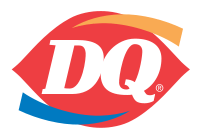Dairy Queen
Interested in selling your Dairy Queen NNN property or Dairy Queen lease property and was wondering what you can get for it in today’s changing market?

Number of locations
Revenue and income
Future plans
Corporate vs. franchise
Additional information Dairy Queen Properties
Dairy Queen History
Why Invest in Ground Lease and NNN Lease of Dairy Queen?
1) Dairy Queen NNN Property Investment: Stable income
2) Dairy Queen NNN Property Investment: Established tenant
3) Dairy Queen NNN Property Investment: Low management responsibility
4) Dairy Queen NNN Property Investment: Favorable lease terms
5) Dairy Queen NNN Property Investment: Real estate value
Strategic placements of Dairy Queen locations in high-traffic areas have the potential to enhance property value, offering the prospect of capital appreciation.
Pros and Cons of Dairy Queen Ground Lease and NNN Lease Investment
Pros:
1. Reliable income stemming from a well-established brand.
2. Established tenant presence lowers vacancy and lease default risks.
3. Landlords’ management responsibilities are minimized.
4. Long lease terms ensure stability and potential income growth.
5. Potential property value appreciation in prime locations.
Cons:
1. LUncertainty upon lease term expiration for lease renewal.
2. Dependency on Dairy Queen’s operational success and challenges.
3. Profitability is influenced by market saturation and competition.
4. Limited control over property decisions.
5. Inherent economic and market risks associated with real estate investments.
In-depth research is vital, considering location, lease terms, tenant strength, and investment strategy. Engaging with real estate professionals and financial advisors is recommended to align your investment approach with your objectives and risk tolerance.
Pros and Cons of 7-Eleven Ground Lease and NNN Lease Investment
Pros:
1. Stable income from a well-established brand.
2. Established tenant reduces vacancy and lease default risks.
3. Minimal management responsibility for landlords.
4. Long lease terms provide stability and potential income growth.
Cons:
1. Lease renewal risk when the term expires.
2. Dependency on 7-Eleven’s success and operational challenges.
3. Market saturation and competition affect profitability.
4. Limited control over property decisions.
5. Economic and market risks inherent in real estate investments.
Thorough due diligence and consideration of location, lease terms, tenant strength, and investment strategy are essential. Seek guidance from real estate professionals and financial advisors to align with your goals and risk tolerance.

